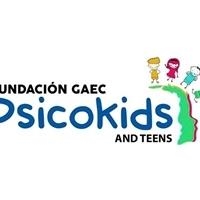The speech therapist is a professional who specializes in speech, language, social and cognitive communication, as well as swallowing disorders. He is responsible for evaluating, diagnosing and treating conditions that affect oral communication, pronunciation, language comprehension, voice and the ability to swallow. He uses specific therapeutic techniques, exercises and activities to improve communication and swallowing in people of all ages, from children to older adults. It is advisable to see a speech therapist if you have difficulties with speech, language, communication or swallowing, to receive a complete evaluation and a personalized treatment plan that promotes optimal development and functionality in these areas.
Aphasia is a disorder in the part of the brain that controls language, making reading, writing and expressing what you want to say difficult.
Apraxia of speech (AOS) is a loss or impairment in the ability to voluntarily produce or coordinate the movements necessary for producing understandable speech sounds for communication, despite intact motor function. A common misconception is that people with apraxia have a problem understanding language; however, it is an inability to produce language. The term 'apraxia' is often used as a general term for many "speech disorders", as opposed to AOS, which is the loss of motor control over non-verbal structures.
Asperger's syndrome is a developmental disorder that mostly affects communication, relationships, and social development.
Atypical swallowing is the lack of coordination in facial muscle movements.
Cerebral palsy is a congenital disorder of movement, posture, or muscle tone.
Cerebral stroke is a condition arising from the loss of oxygen to the brain, which can cause impairment in one or more brain functions.
The cleft palate is a malformation in the fetus during its formation where a separation occurs between the shovel and the lip.
One of the most world's commonest and disabling conditions is called as "Cognitive-communicative disorder" (CCD). It is not a single disease but it is an umbrella term which includes many brain disorders that affect person's language, speech and communication abilities.
Dyslalia is the difficulty of articulating some phonemes (consonants). It is generally a childhood problem although there are adults who can suffer from it.
Down syndrome is a genetic disorder produced by an extra chromosome, which causes intellectual disability and physical development disorder.
Dysarthria is a motor speech disorder where the muscles of the face, mouth, respiratory system slowly weaken or move.
Dysphagia is an alteration or discomfort for swallowing and the formation of the food bolus in the mouth as well as the action of swallowing.
Dysphemia or stuttering is a speech disorder based on abnormalities in language fluency.
Dysphonia is a voice disorder
Hearing loss is the decrease in hearing, making it impossible to hear normally. It can occur in one or two ears.
Hydrocephalus is the agglomeration of fluid in the cranial cavity.
Language problems or speech disorder can be caused by mental retardation or lack of hearing. Avoiding a correct pronunciation.
MCI stands for Mild Cognitive Impairment, and is a condition that affects cognition. Memory loss is common with this condition, sometimes more profound than the average forgetfulness that comes with aging. However, those affected by MCI still function normally in daily life. They are often aware of their cognitive decline and understand that it's not part of normal aging.
It is a pathology in which an abnormal and progressive hardening of tissues or organism is represented. It mainly affects the blood vessels and the nervous system.
Otitis is an infection in the ear that causes inflammation.
Presbylarynx is the medical term for "aged voice" which results from changes within the larynx as a person ages. This condition typically happens naturally with advancing age, but can also happen with prolonged use of one's voice due to yelling, singing o lossr talking loudly. When this has happened over time it is referred to as Laryngo-pharyngeal reflux. x include
Presbyphagia is the name of the condition which happens when you can't swallow properly. It's usually something that develops slowly over time because it's really caused by muscle weakness in your throat and esophagus, but there are several other things that can cause it. This makes it important for you to take care of your throat and esophagus properly because this condition can lead to serious health problems like choking, pneumonia, and malnutrition.
A stroke is a sudden stop in blood flow to the brain. It can be caused by an embolism, thrombus, or blood clot (hematoma). Symptoms include weakness and paralysis on one side of the body, difficulty walking, confusion, and loss of consciousness.
The speech therapists in MedicosDoc.com provide the best care for national and foreign patients. Request your appointment today with the best speech therapists in Colombia.
-

(Physiotherapy, Pediatrician, Physical therapy, Pediatric neurologist, Clinical psychologist, Child psychiatrist, Child psychologist, Child neuropsychologist, Eating behavior psychology, Occupational therapy, Speech Therapy, Nutritionist)
Cra. 18 No. 26 -180 Manga, primer callejón , Psico Kids & Teens IPS
Cartagena, Colombia
Ver Teléfonos
Ver perfil y pedir cita
-

(Physiotherapy, Psychologist, Physical therapy, Respiratory therapy, Clinical psychologist, Occupational therapy, Pelvic floor rehabilitation, Speech Therapy, Deglutologist)
Cra 7F No. 145 - 59 , Sede Cedritos
Bogotá, Colombia
Ver Teléfonos
Ver perfil y pedir cita